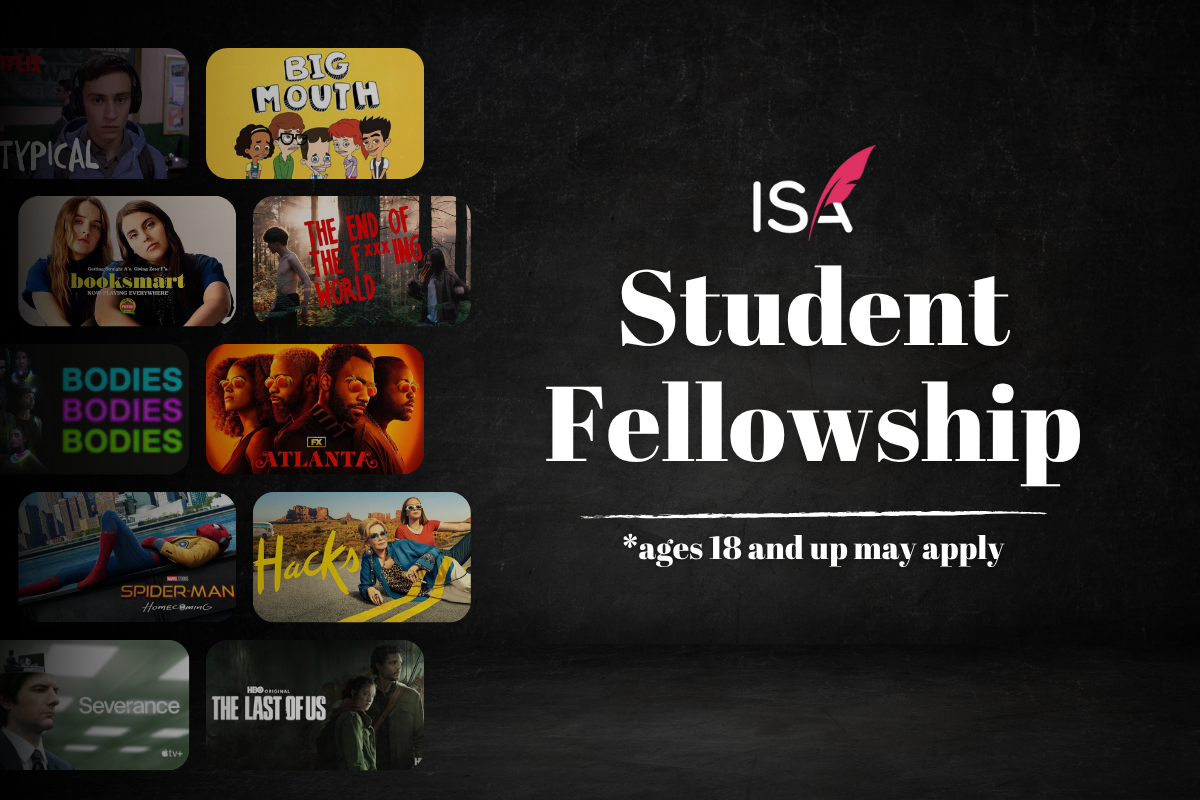INTERVIEW: Jeff Willis on the Future of Hollywood
Many factors affect the film industry, from the change of social norms, to a global pandemic. Jeff Willis, Director of Credits and Administration at Marvel Studios, shares his thoughts on the future of Hollywood.
In any given year, a shift occurs in how the film industry operates. Some changes are predictable, but others come out of nowhere. While no one could have anticipated what 2020 would drop upon the world, we must take the reins and prepare for the new landscape.
Since entertainment executive Jeff Willis, Director of Credits and Administration at Marvel Studios, is also a screenwriter, I asked his perspective on the future of the industry. Jeff shares thoughts on what must change, but also what will never change.
Interview has been edited for content and clarity.
How do you envision the future of movies?
No one knows whether it's next week, next month, or next year before we can create safe conditions to shoot (meaning limited cast, crew, and locations) and theatrically exhibit movies. It actually dovetails with the advice people have been giving for years—if you want the best chance of making something, write a super low-budget script. More people can fund a $250,000 budget movie than a $250 million budget movie.
Obviously, if you're trying to get into the studio system as a writer, or you want to write those big-budget films, that's something that I think is going to be “TBD” for a really long time.
Working at Marvel, they don't make small, contained thrillers. They do big, action sequences with hundreds of stunt people. Those projects will take a lot longer to get up and running until there is a vaccine, or at least therapeutics that can mitigate the spread of this disease. No one's anxious to pack 250 extras onto a soundstage at this point. It's probably going to be that way for a little while.
What are examples of ways to write low-budget films?
Avoid expensive elements including period pieces, elaborate costumes, or an immense amount of set building. Write scenes that can be shot simply and quickly. Every time you move a location, it takes time to break everything down, move it, and set up again. Fewer locations shoot faster and cheaper than if you constantly move the production around.
Special effects are expensive. If you need snow or smoke, that's costly, as are stunts, guns and explosions. Safety requirements and precautions are required. If you're going to blow something up on set, you can't just set off an explosion. You need explosives experts and safety personnel on set in case something goes wrong. It requires an immense amount of additional staff to facilitate.
Also consider the characters in the script. Child actors can only work a half a day, and it takes time to get child actors and animal actors to do what you need of them. Overall, the most expensive thing is time. The more complicated the setup, the longer it takes to shoot. And the longer it takes to shoot, the more it’s going to cost.
What kind of projects do you envision being produced in the near future?
Traditionally, studios produce big franchises and tentpoles, but the smaller kinds of movies languish. Now is an opportunity for those smaller projects. I can't guarantee you that a studio would want a theatrical release for low-budget content, but there's definitely going to be an appetite for low-budget movies within the confines of the coronavirus production guidelines that can be shot, posted, and delivered quickly, especially since so many streaming outlets are hungry for content.
Can you speak to relationship between a manager and a writer?
Don't be in a rush to find an agent or a manager. Find the rep who really gets what you're going for, gets who you are as a writer, and believes in that vision and your voice. Having no rep is better than having a bad rep. It sounds trite to condense it down to that, but it's true. A lot of writers feel as if getting a manager or agent is the first rite of passage to get through on your way to success. I've seen writers sign with bad representation because they assume having a rep gives them legitimacy, but then languish because it's not a good fit.
A few years ago, being hip pocketed was considered a slap in the face to writers, assuming the rep didn’t like you enough to want to represent you fully. If they could make something work on a case-by-case basis, you'd make a deal with them. I've had a couple of reps hip pocket me for projects, which I actually find preferable at this point in my career. I don't need to pay a commission on everything I do. Instead, I only pay the rep a commission on the projects they actually set up for me.
It is perfectly valid for a rep to say, "I think this script you've written is not a good fit," but they should be guiding you in a way that compliments your writing and goals. That is their one job—to help you. If they don't believe in you enough to send out your script to the execs they know, then neither of you need that relationship. Reps shouldn’t be additional gatekeepers that a writer needs approval from in order to get their work into the hands of buyers.
Beyond getting representation, many writers strive for that WGA label. Does belonging to the WGA help?
Writing is such a serial job where it is so hard to define success. Even if you sell a script and get a movie made, you may not have a career. You may be one and done, or no one will ever know your name because you optioned something but never get anything produced. Most of the time you’re alone in a room by yourself wondering if you're going in the right direction. People look to clamp on to things they see as very definitive milestones—proof you’re trending in the right direction. Getting into the WGA doesn't mean it’s easy sailing from here on out.
I hate to break it to writers, but a lot of people have reps. Just the fact that you have a rep as an intermediary, or are a WGA member, does not give you more legitimacy in the eye of a company. A company couldn't care less what your status is as a writer. The question is: Can you write the script they want you to write? That's all they care about.
Many novelists pursue a Masters in Fine Arts. Is film school necessary for screenwriters?
Film is one of the few areas where your degree doesn't matter. If you want to be a creative exec, a writer, an operations or production person, success is built on the actual experience you get. Certain film schools, like UCLA, USC, and NYU, have a very good alumni network, which is the true value. You’ll meet people who are further along who feel an obligation to help you. It’s about networking more than an education.
The story I always like to tell is about my first job out of film school. I worked for a national company for six months while I was waiting for job interviews at production companies. At an interview for the job I ultimately got, they were asking questions like: “Where did you go to school, what did you do, tell me about your strengths.” And the interviewer asks, "And you have a BA, right?" I said, "Yes, I graduated with a degree in electronic media with an emphasis in global media studies and some production management." She responded, "No, no, no, no. That was a yes, or no question. Do you have a BA?" And I'm like, "Yes, I have a bachelor's degree." She's like, "Great. Check the box, moving on." Which didn't make me feel really good.
Actual hands-on experience is the number one thing that's required in this industry to do anything. Where you went to school is irrelevant. So much of this industry and its business elements are unique that it would be impossible to prepare you in an academic environment. I mean what other kinds of business are out there where you put $1 million into development every year, except maybe pharmaceuticals? Studios burn through 90% of it and get nothing of value. You can't directly correlate the amount of money you spend to the quality of the product. It's not just if we spend an extra $1 million, we get $1 million more value out of the movies we make.
Much of film school is arts centric. But I think it's hard to find those kinds of practical, nuts-and-bolts business topics. I wish there were more, and I wish people tried to include it. It's a lot easier to just say, "Hey, here's a class about directing. Here's how you point the camera. Here's how you structure a story," than it is to say, "Here's how you really look at a budget and figure out how to break it down and make sure you're not overspending on catering, or lens flares or something like that."
With people working from home, do you see writer's rooms being more remote?
My hope is that this situation will create a permission structure by which people are able to work from home more, rather than being required to be in an office. But video conferencing doesn't replace the experience of actually being in a writer’s room, especially with comedies where you need to workshop jokes.
But I hope people's eyes have opened to the idea that employees can be trusted to be productive from home and choose when it's appropriate for them to be in the office and when it's not. Everyone doesn’t have to be in a certain place at a certain time just because that's the way it's always been done.
Writers think of the moment they first option or sell something as euphoric, but contracts need to be negotiated first. What are some essential contract-negotiating tips?
The number one contract tactic is don't sign a deal you're not happy with, which a lot of people feel pressured to do, especially if the other side plays hard ball. Again, if you're desperate to make a sale because you need to pay rent, or because it's going to be your first script sale, there may be a tendency to agree to something you're not happy with just because the alternative means having no deal at all. But just like with reps, it's better to have no deal than a bad deal. It’s far better to walk away that it is to have to live forever with a decision that you just kick yourself with over and over again.
The classic type of example would be if you agreed to a really bad original deal, but the movie ended up having all kinds of sequels later, the last thing you want is to have been the original creator of the John Wick franchise, or Star Wars, or Twilight and realize that they are continuing to make hundreds of millions or billions of dollars off of your IP, and you're still getting a $5,000 royalty or worse. I would rather walk away from a deal and look back on my life and say, "I never sold a thing," than to see movie number seven in the series come out where I'm not getting any participation, and other people making millions of dollars off of what I created.
Second, make sure you understand what you're signing. Whether that means hiring an attorney or having someone knowledgeable look over the contract, you need to understand everything you're signing.
Legalese can be really difficult, and it can be confusing, and it can be complicated, and lawyers are expensive, especially if you have to hire them, but it is worth it to be able to sign something that you 100% understand than it is to sign something you're unsure of and then realize that you got badly screwed, while everyone else is doing really well.
Which leads me to the book you’re currently writing. I know you are a huge supporter of writers, and I’m excited that you’re taking the next step in offering critical advice.
It's kind of like a crash course on business concepts so that writers are more knowledgeable at the contract step. For example, one section of the book is a breakdown of contract provisions in a Writer's Agreement, explaining what an indemnity means, what injunctive relief means, this is how credit typically works, here's how compensation works, and here are different ways you can be compensated as well as things to look out for. Each section has a little pro tip about how to be savvy in your negotiations, writing credit, perks, or traveling expenses.
My hope is that for the cost of about a cup of coffee, or a lunch, the book can give writers a basic understanding, on the surface level, of how the business works and how contracts work so that they can have a more educated conversation with an attorney when they're talking about it. But if they don't have an attorney, at least they aren't completely in the weeds and can look at something and say, "Okay, well, I kind of get this."
If you're negotiating your own stuff, whether out of necessity or just because you don't like attorneys, it's really hard because a lot of people will be too afraid to ask if they don’t understand something. So, they'll just gloss over it. I really want this primer to either help facilitate better conversations with your reps, or if you're the one doing the negotiating, be more comfortable using that vocabulary to go back to the people you're negotiating with and say, "No, no, explain this reversion clause to me. I don't understand what this means. Explain why it’s this period of time."
As much as we all like to think it's an art, and as much as we all like to think it's a calling, it's your professional life that you're working with here. I want to make sure people can make professional decisions about their personal business in a way that makes it more effective.
Knowledge is power. I would imagine, an agent or manager would also want their clients to better understand what they’re trying to negotiate for them.
I do want this to be a resource that writers can use to, again, not just better educate themselves, but to help make better decisions about their reps, too. If I could save even one person from saying, "Oh my God, I can't believe I signed that deal. That was such a mistake" or to say, "You know what? I wasted so much time with this rep, and he's not getting me anywhere." That would make me supremely happy. And that's funny because I so often get people approaching me with questions, and sometimes I get people who listen to me and sometimes I don't.
Giving everything we’ve discussed, what’s the best path forward for writers?
I get frustrated when people say, "The only way to make it as a screenwriter is to write that amazing script that people notice," or, "The only way to break in is to make your own movie and get it into a festival," or, "The only way to make it as an author is to get traditionally published." Instead, I advocate that writers cast as wide a net as possible with their storytelling.
In both screenwriting and traditional publishing, there is a tendency to sit back and wait for someone else to give you permission to do something, which is incredibly frustrating. It's one of the things I hate the most, which is why I advocate doing concurrent things like producing a short film or self-publishing a book.
Diversification is important because you never know what's going to gain traction. If you’re a writer/director, you don't know if it's your writing or your directing that's going to catch on. Or it might be a spec script, a short film, a commercial you shot, or an actual indie feature you got into a festival that gets you noticed. If you're a novelist, it might be your first or fifteenth book that is the one that breaks through, or a side project like a comic book. Create as much output in as many different mediums as you possibly can because you never know what'll catch.
If you could go back and talk to your younger self, what advice would you give him?
Pursue everything and see what sticks. Make your own opportunities and take charge of your career. Constantly be hustling and advocating for yourself because you're your own best champion. No one else is going to do it for you.
When Jeff’s forthcoming book hits the shelves, we’ll update this post, so be sure to bookmark this interview, check Jeff's website, and follow him on Twitter: @jwillis81.
Prepping Your Screenplay to Win Competitions Intensive
Jeanne Veillette Bowerman is a Senior Executive at Pipeline Media Group and Book Pipeline, Editor-in-Chief of Pipeline Artists, Director of Symposium—a year-round conference in the arts, co-host "Reckless Creatives" podcast, partner at Fringe Press, former Editor-in-Chief of Script magazine and a former Senior Editor at Writer's Digest. Recognized as one of the "Top 10 Most Influential Screenwriting Bloggers," her "Balls of Steel" column was selected as recommended reading by Universal Writers Program. A compilation of her articles is now available at The Writers Store—Balls of Steel: The Screenwriter's Mindset. She is also Co-Founder and moderator of X's weekly screenwriters’ chat, #Scriptchat, and wrote the narrative adaptation of the Pulitzer Prize-winning book, Slavery by Another Name, with its author, Douglas A. Blackmon, former senior national correspondent of The Wall Street Journal. More information can be found on her website. X: @jeannevb | IG/Threads: @jeannevb_ | BlueSky: @jeannevb.bsky.social







